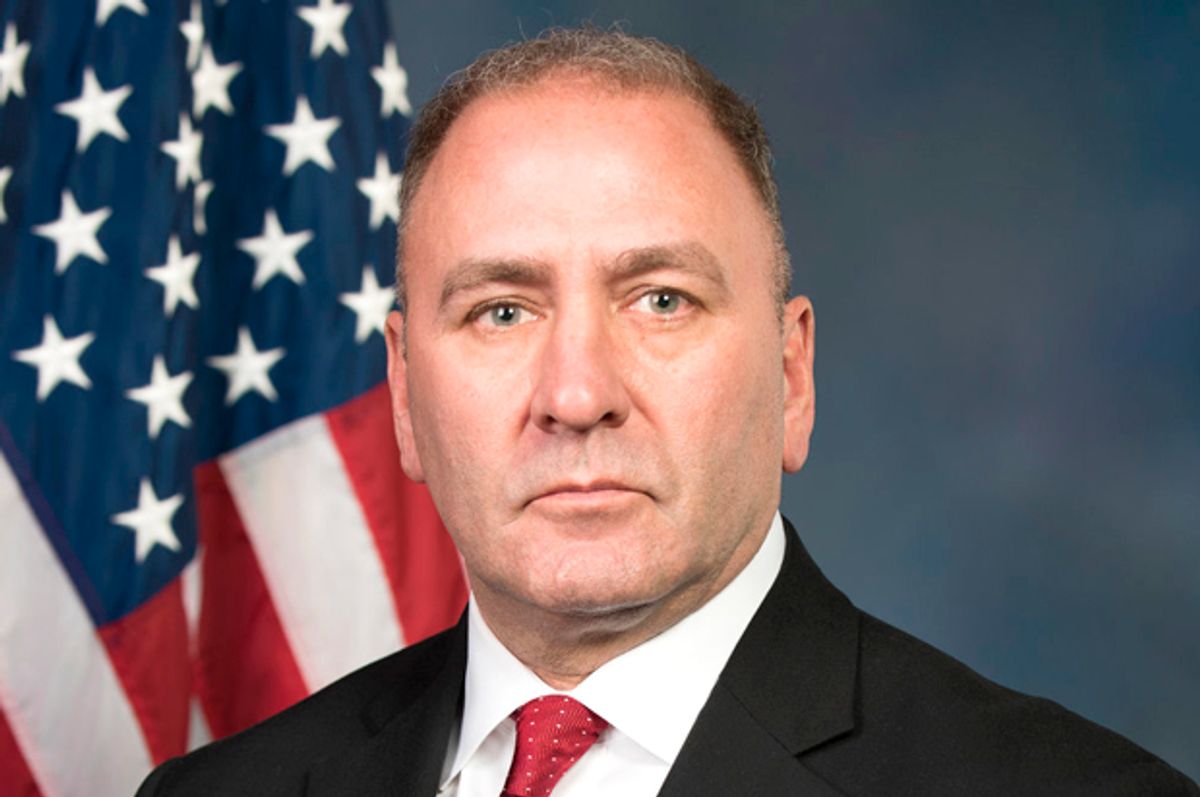President Donald Trump may be America's first reality TV star president, but his impact on our nation's political culture spans beyond his own administration and actions.
As the recent controversy over Rep. Clay Higgins of Louisiana demonstrates, the Trump era is one in which politics across the board is beginning to play more and more like a reality TV show.
In Higgins' case, the trend bit him in the backside because of his personal blind spot when it comes to ethnic sensitivity. Last month, when writing about an anti-Semitic hate crime that I survived as a child, I noted that Higgins had displayed a brand of Christian chauvinism in his anti-terrorist rhetoric that made me uncomfortable as a Jewish American.
As followers of this week's news cycle may have noticed, Higgins stumbled upon a more conspicuous way of making his Jewish fellow citizens uncomfortable on Wednesday. In a video shot at the Auschwitz concentration camp, Higgins went on a political rant about how "it's hard to walk away from gas chambers and ovens without a sober feeling of commitment — unwavering commitment — to make damn sure that the United States of America is protected from the evils of the world."
As the Auschwitz Memorial accurately pointed out in response, "everyone has the right to personal reflections. However, inside a former gas chamber, there should be mournful silence. It's not a stage." To his credit Higgins — who has never been one to apologize merely out of political pressure — offered a video retraction in which he agreed that his posting "has caused pain to some whom I love and respect" and reiterated that "I have always stood with Israel and all Jewish people, and I always will."
I'm inclined to believe that Higgins is sincere here, mainly because I'm familiar with his old TV segment "Crime Stoppers." For those of you unfamiliar with Higgins' political career, he became a celebrity in Louisiana when as a public information officer for the St. Landry Parish Sheriff's Office he hosted a series of videos that highlighted local crimes. Higgins' tough talk and colorful Southern personality made him in an instant star, so it's hardly surprising that he took that televised approach to his political career.
Indeed, part of what makes the Auschwitz video so offensive is the sheer obviousness with which it is staged like a reality-TV event. The entire segment is contextualized from Higgins' point of view, which works for a reality-TV star but is inherently off-putting when used to discuss a human rights tragedy with which that star has no immediate personal connection. Although Higgins displays sympathy for the Jewish victims of the Holocaust, he used that sympathy — like the setting of Auschwitz itself — a platform on which to score a political point.
Higgins makes matters worse by choosing a position that isn't even supported by the Holocaust. Although Higgins claims that the gas chambers are evidence as to "why homeland security must be squared away, why our military must be invincible," the Nazis weren't terrorists. They were an oppressive regime created and empowered by German citizens, based on an ideology that, if not held by a majority was at least tolerated by it, and were nearly able to conquer the world and wipe out an entire people precisely because they had a strong military.
Indeed, considering that America engaged in only limited efforts to save the Jewish victims of the Holocaust, it is at best counterintuitive to point to that event as a justification for American military power.
Yet if you watch a few episodes of "Crime Stoppers," you can immediately understand the thought pattern behind Higgins' argument. In his most popular "Crime Stoppers" segments, Higgins used Biblical hyperbole to hammer at the criminals he was targeting and drum up support for their victims. This is a very effective approach to making compelling reality TV, and in an America, whose president seems to be driven by a reality-TV mindset, it makes sense that a congressman with a similar background would mimic his approach.
What Higgins has learned the hard way, like Trump himself, is that actual reality isn't the same thing as reality TV. Even when the act of mistaking the two isn't as offensive as Higgins' Auschwitz video, it can still be pretty devastating for those who value such concepts as truthfulness and propriety.
Unfortunately, considering that the reality TV stars are still in power right now, the likelihood is that we're only going to see more gaffes like Higgins' in the future.

Shares